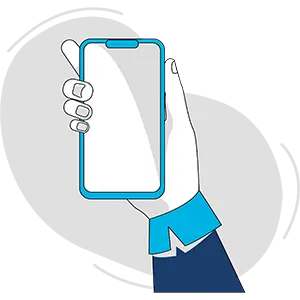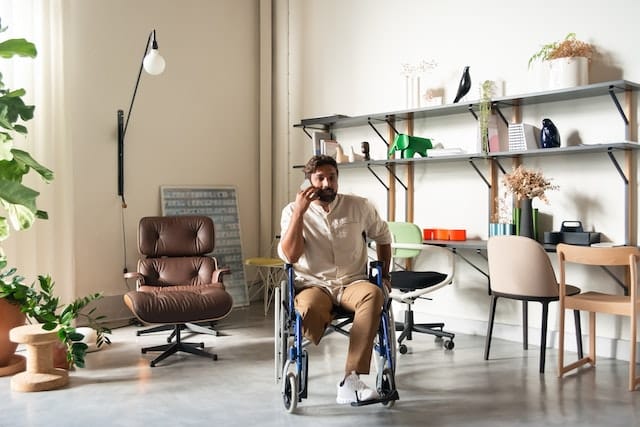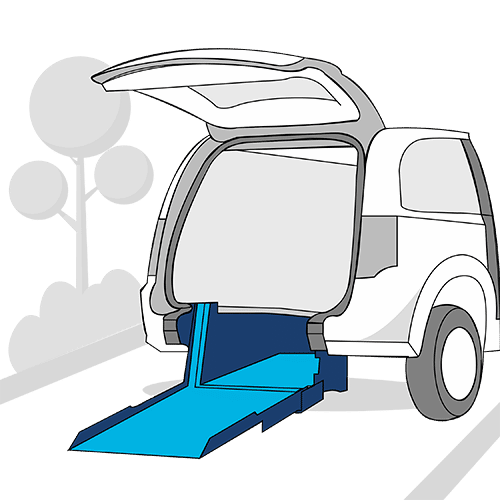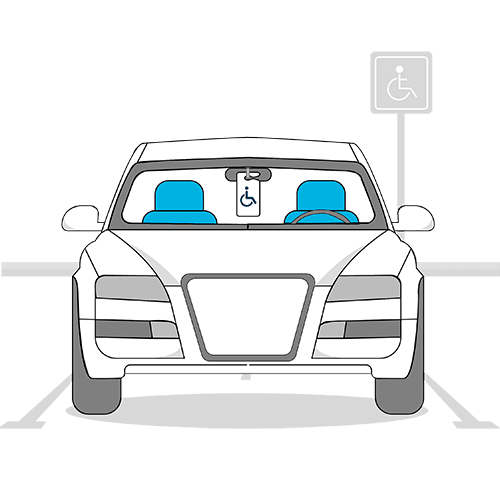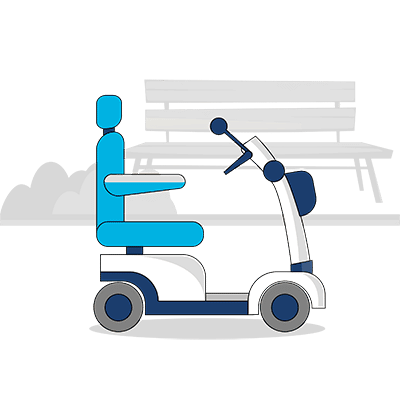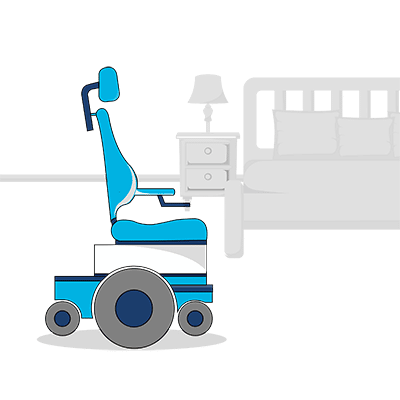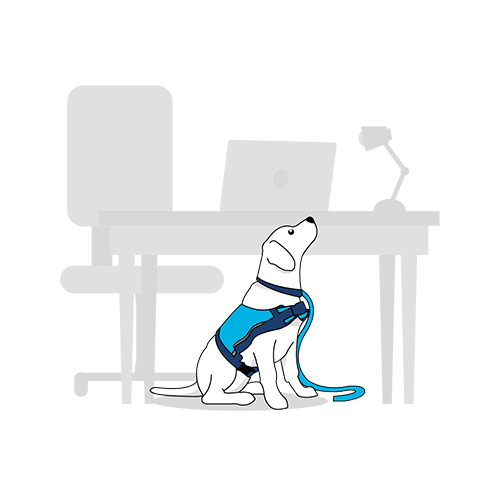Ever thought of becoming your own boss? Many entrepreneurs with disabilities have taken this approach by making their home business ideas into realities. This is largely because finding jobs for people with disability can sometimes prove to be tough. Essentially, the disability employment gap has forced many people to make their own opportunities. New research is backing this up.
The Sydney Morning Herald shares statistics from a research paper indicating 13.1% of people with disabilities work for themselves compared to 9.2% of people without disabilities.
If you’re among the many who face discrimination in the workplace or find it difficult to get employment with a disability, perhaps you’ve thought of self-employment? Perhaps even from your own house, apartment or similar? Starting a home office is not for everyone, but it can sometimes be very rewarding.
In this article, Blue Badge Insurance looks at results from the new research and shares tips on starting your own business from home.
Let’s take a look.
In this article
- Entrepreneurs tackle the disability employment gap
- Australian entrepreneurs with disabilities
- The disability gap is a real concern
- Entrepreneurial jobs for people with disability
- Entrepreneurs need a good business plan
- Disability employment gap research
- Tips for joining entrepreneurs with disabilities
- Protecting your mobility at work and home

Entrepreneurs tackle the disability employment gap
Have you ever wanted to start you own business? Been wondering how to for some time now but haven’t quite got there yet? Even if it’s a completely new idea, perhaps you’re keen on finding out more.
Either way, you’re not alone.
A research paper from the UTS Business School and University of Technology Sydney shows there’s a bigger proportion of entrepreneurs with disabilities than without in Australia. Watching others succeed in something you’re considering can be great inspiration.
On that note, take a look at some Australian entrepreneurs with disabilities.
Australian entrepreneurs with disabilities
It’s certainly been done very successfully before – think of Dylan Alcott who is one of the founders of Ability Fest, for instance. Of course, he’s a famous example because he’s also well-known for being a wheelchair sports champ. But not all businesses need well known bosses because not all businesses do the same things.
That said, he’s still top of our list of Australian entrepreneurs with disabilities:
- Dylan Alcott. Alcott founded Able Foods along with two friends. The disability led business provides delicious and healthy meals for people living with a disability and caters to a wide range of eating requirements.
- Carol Taylor. Carol Taylor is a mother, lawyer, painter (read all about her accessible art creations) and Australia’s first quadriplegic inclusive clothes designer. A car accident in her young adulthood resulted in a spinal injury that resulted in quadriplegia. Carol recently joined the Christina Stephens adaptive clothing label.
- Eva Sifis. After Eva Sifis was knocked by a car when crossing a highway, she had to quit her dancing career due to acquired brain injury. Today, she is an advocate, actor, writer and more, having found art to be a driving force for disability rehabilitation.
As far as self-employed and funded jobs for people with disability go, disability art is a world of possibility. This is a workspace that often requires self-employment and a mix of working at home as well as out of home.
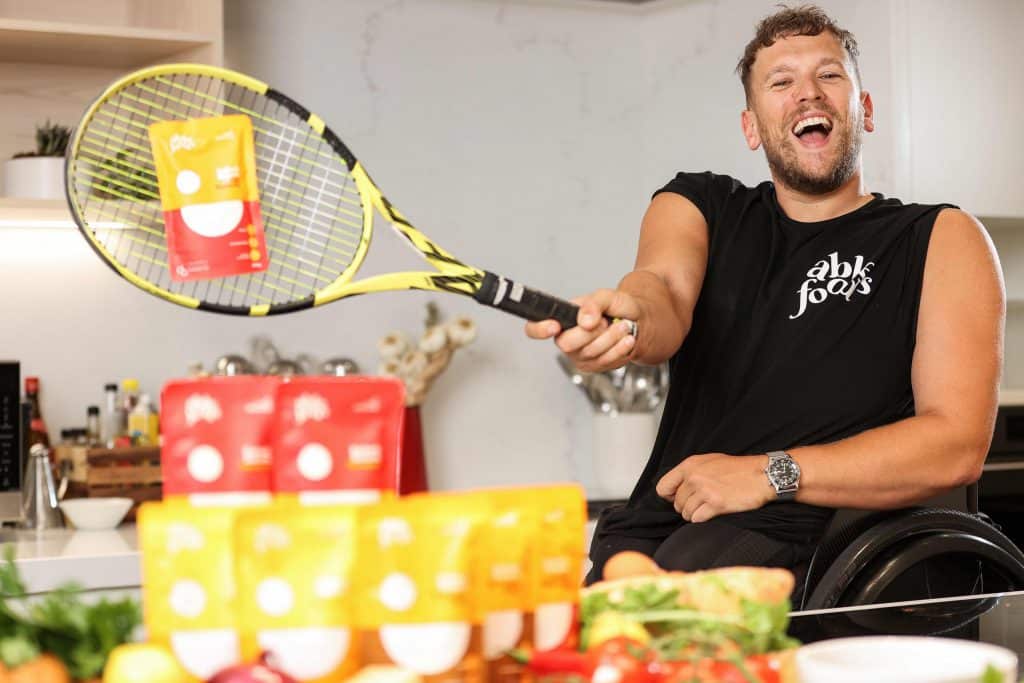
The disability gap is a real concern
It’s well known that even in a country like Australia that has several large and small scale support systems for disability, there’s still a considerable disability employment gap. It’s not just a lack of jobs for people with disability that’s the problem.
The study we mentioned earlier highlights that people with disabilities in the workplace still face prejudice.
Discrimination
Think about it; when you’re doing a job, getting it right already takes up almost all your time, focus and energy. Add a couple (or more) of hostile co-workers or higher ups and that can eat up all your efforts and go beyond.
This needs to end and for many wheelchair users there’s been no alternative but to channel their drive to work into home business ideas.
Closing the gap
In our latest article on areas the Australian Disability Strategy is measuring to see where improvement is needed, employment is a priority on the list. But it sometimes takes years for workplaces to become more inclusive and for the general person on the street to fully understand and embrace inclusivity.
The disability employment gap is real, with the Sydney Morning Herald sharing that only 53.4% of people with disabilities find gainful employment compared with 84.1% of people without disabilities.
However, there is good news – the Federal Government and Australian businesses are launching a disability employment pilot scheme worth $3.3 million. Read more about it here.
That said, maybe you’ve felt your skills and knowledge aren’t being given the right opportunities? If you’re among the many who find disability in the workplace isn’t adequately supported, perhaps finding out more about entrepreneurs with disabilities could inspire.

Entrepreneurial jobs for people with disability
Many professions that simply need a computer and internet setup can operate from home nowadays. This opens the scope of entrepreneurial jobs for people with disability to having a budget, basic equipment and one or more home business ideas that you believe in.
There’s very little need to go into an office for a large range of jobs. (Something many capitalised on with the move to working from home during the height of COVID lockdowns).
Here are some examples:
- Animator
- Blogger
- Bookkeeper
- Business consultant
- Content writer
- Customer service consultant
- Graphic designer
- Marketing manager
- PR consultant
- Social media influencer
- Transcriptionist
- Tutor
- Virtual assistant
- Web developer
There really are too many options to list here. We’re sure you have some home business ideas or professions of your own to add to the list. Read tips for starting your own business together with this government guide.
Entrepreneurs need a good business plan
If you have a good idea and business plan you may be able to be a one-person business as a start. If your business has or needs staff then you don’t always necessarily need to meet in person to get things done.
You can discuss work and brief in then track projects via Google Docs, Teams, Zoom, Trello and so much more.
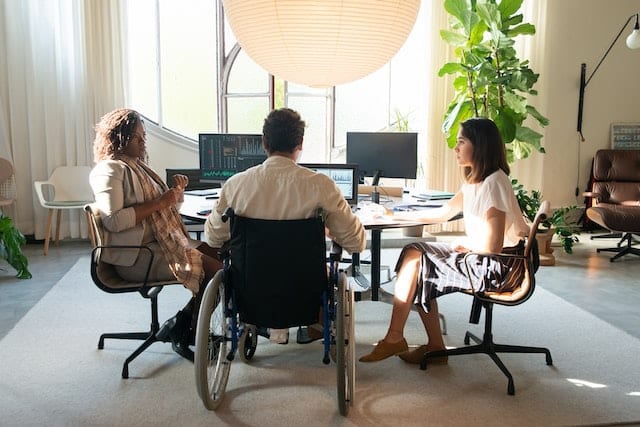
Disability employment gap research
Most of us are all too aware that many Australians with disabilities are forced to take the self-employment route because there are simply fewer employment opportunities.
The Australian Research Council linkage project on entrepreneurs with disabilities from the UTS Business School and University of Technology Sydney is the first national study to look at this topic.
Let’s explore this a little…
Top barriers and motivators
To gain insights, researchers talked to 60 entrepreneurs with disabilities and asked 160 more about their experiences. The results were clear: there’s a lack of opportunity for people with disabilities and this can be disheartening. Despite this, the drive to be part of the economy perseveres.
Many entrepreneurs with disabilities are those who’ve looked for alternative routes to participate. Many have also had success in bringing their home business ideas to life.
The research listed the top disability employment barriers. It also listed the top motivating factors for respondents to become entrepreneurs with disabilities. Here are the top five challenges and motivators listed:
| Barriers / challenges | Motivating factors | |
| 1) | Budgetary limitations | Helping others |
| 2) | Future unpredictability | Being your own boss |
| 3) | Insufficient funds | Flexibility |
| 4) | Economic dependents | Skills development |
| 5) | Time constraints | Putting creative talents to use |
Thanks to the Australian Research Council for running this linkage project and to Settlement Services International, National Disability Services and BreakThru People Solutions for funding it. After all, knowledge is power!
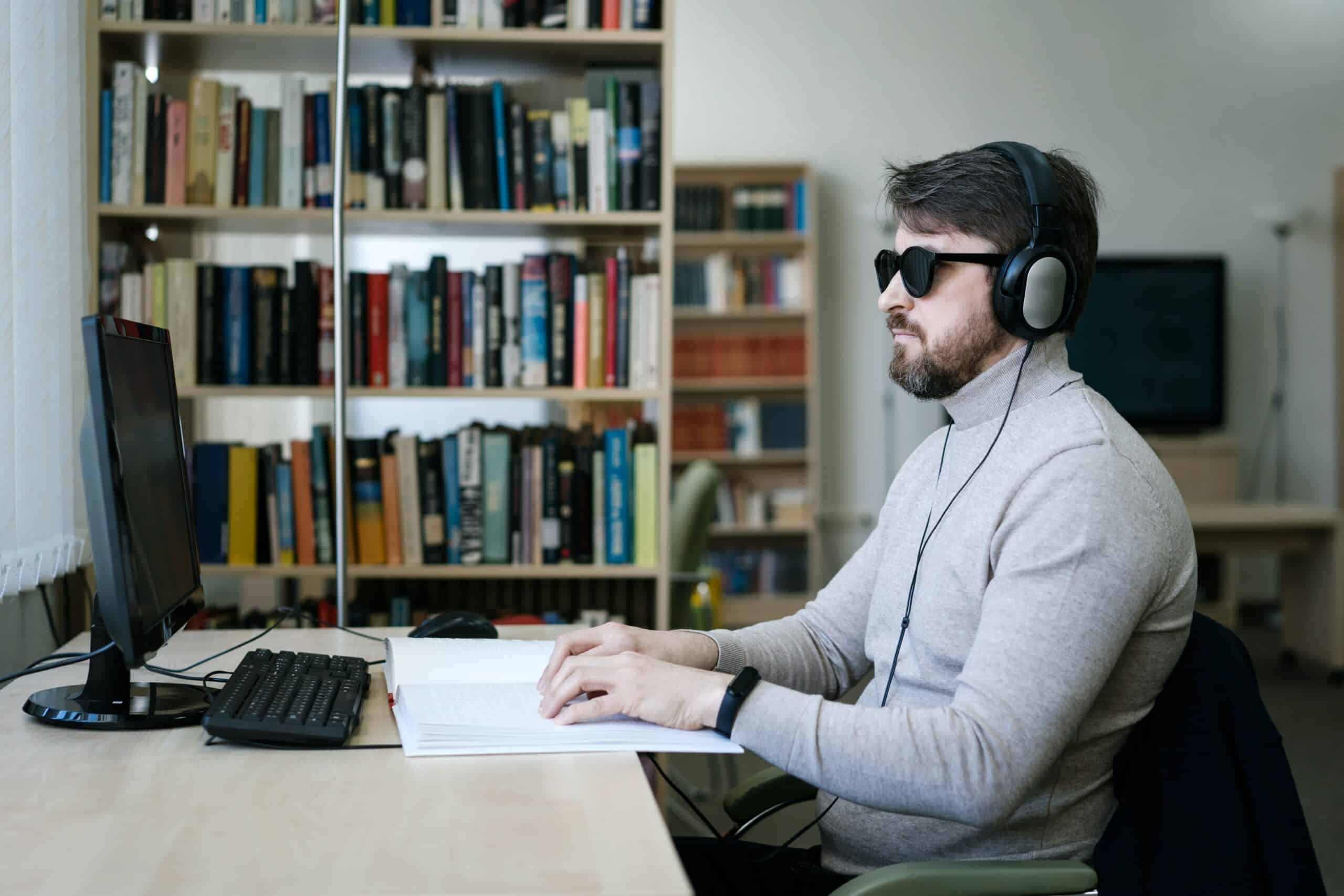
Tips for joining entrepreneurs with disabilities
Now more than ever, the opportunity to work from home is becoming widely acceptable. That’s one good thing that came out of COVID! Working from home awards people with disabilities the freedom to wear comfy clothes, go to your own bathroom and (often it allows you to) pace yourself to your own schedule.
These upsides can be greatly beneficial in catering to and supporting one’s physical strength, stress levels, feeling of well-being and overall productivity.
If all this sounds like something up your avenue, read the below tips for starting your own work from home business.
The need for an accessible home
Bringing those home business ideas to life will likely require having an accessible home (something you may already have).
For example, moving easily between spaces both in terms of the size of your mobility equipment and adjoining areas or doorways is important. So is having ramps at all points where there are steps. It’s also important to cover cables with carpeting or rubber mats, to reduce wheelchairs and other mobility equipment from catching.
Read more on how to create an accessible home and find out about universal design in housing.
And an accessible home office
Working can be strenuous so if you work from your wheelchair, it’s important to ensure you’re as comfortable as possible. Our guide to making your wheelchair more comfortable can help with seating.
For your desk space, you might want a height adjustable table. Also check out adaptive stationary and tech accessories that can make work smoother.

Assistive tech for entrepreneurs with disabilities
Assistive technology is useful for bringing home business ideas to life more easily as these are designed to improve productivity. There are several options that support a wide variety of vision, hearing, mobility and cognitive disabilities.
- Virtual assistants. Explore the latest innovations in assistive technology to find out which software and hardware can be your eyes, ears and even your virtual assistant.
- Accessible smartphone technology. Also read about smartphone accessibility features. These are great because you have the technology with you when you’re out and about or working from home.
- Accessibility Apps. Along with this, you might also want to explore five of the latest apps for people with disabilities. Perhaps take note of Microsoft’s disability answer desk too, to help troubleshoot any technical issues you encounter along the way.
Now that we’ve explored comfort, safety and accessibility when bringing to life your home business ideas, let’s look at protecting the mobility equipment you use to get around.
Protecting your mobility at work and home
Whether you join the movement of entrepreneurs with disabilities or not, we know your mobility equipment is key to independence.
That’s why we recommend protecting it for accidental damage or theft inside and outside the home. Having wheelchair insurance and mobility scooter insurance helps you pay for repairs or replacement if you need to.
As Australia’s first disability and independence insurance specialist we know your car is invaluable too. That’s why we offer up to 25% off car insurance for wheelchair accessible vehicles and disability car insurance.
Click below to get a quote.

